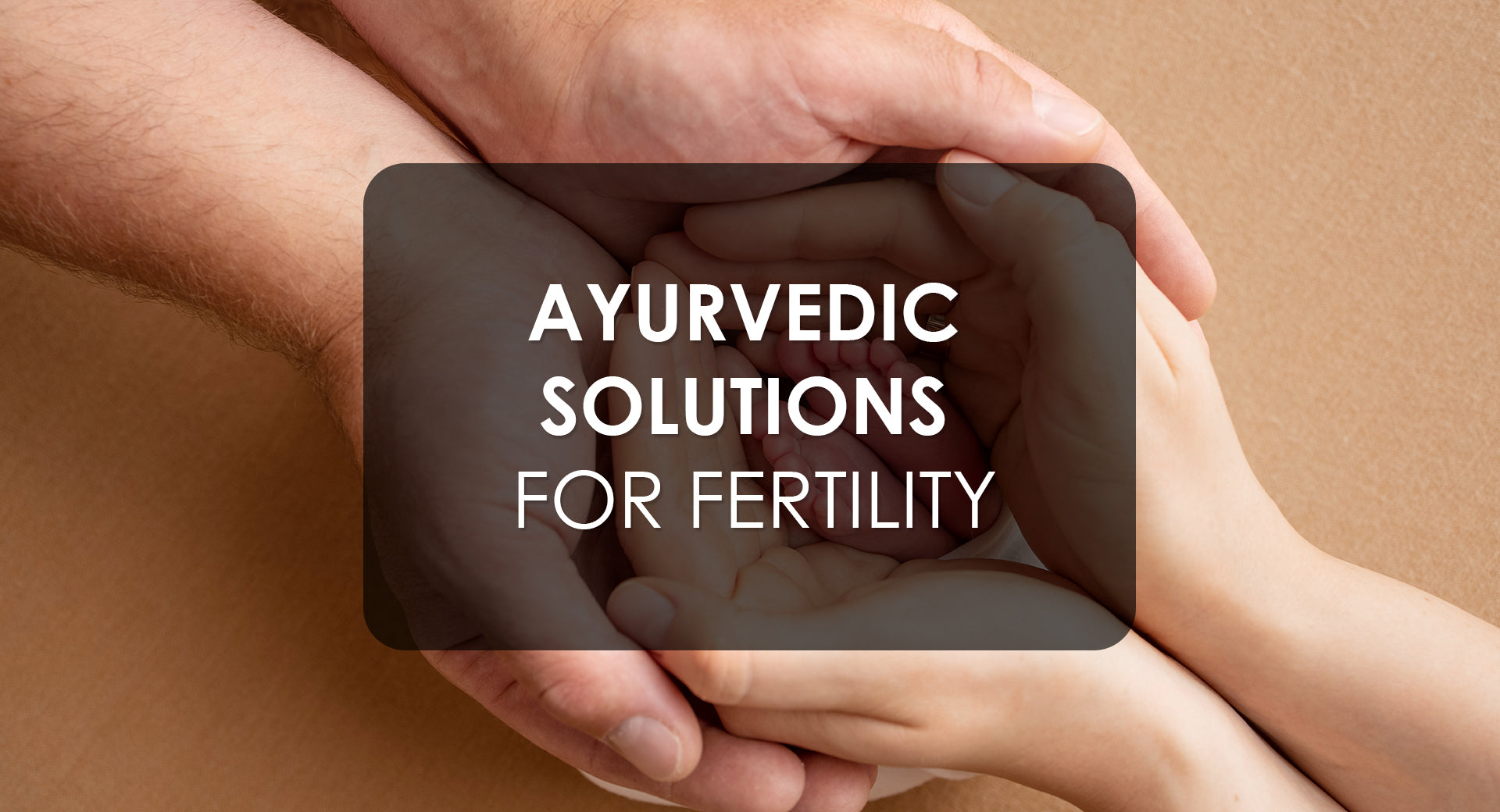
Ayurvedic Tips to Enhance Fertility
Nowadays, lifestyles have become disrupted. Unlike before, many people no longer wake up early to exercise in the morning; instead, they rush to the office. They spend the entire day sitting in the same chair, with very few taking breaks to walk even after meals. These habits directly affect women's fertility, especially due to the stress of office work and household responsibilities.
It is evident that a large number of women and men are currently struggling with infertility. Some resort to IVF treatments, while others hope for natural conception. Each individual faces their own unique challenges and seeks solutions accordingly.
If you're experiencing difficulty conceiving naturally, Ayurveda may offer some assistance. In this article, we provide information on tips from Dr. Sharad Kulkarni, M.S. (Ayurveda), (Ph.D.), a Vaidya at the Jeevottam Ayurveda Center in Bengaluru. These Ayurvedic tips aim to support quick conception.
Right Age for Pregnancy:
Healthline.com suggests that the late 20s and early 30s are optimal for pregnancy. Fertility tends to decrease with age, so it's advisable to plan for pregnancy before turning 35.
- Advice from an Ayurvedic Doctor:
According to Dr. Sharad Kulkarni, having intercourse between the 10th and 20th days of the menstrual cycle, especially on the 14th day, greatly increases the chances of quick conception. If natural conception is not successful, Ayurveda can help overcome this issue. Dr. Sharad Kulkarni recommends Panchakarma, Virechana, Basti, or Vaman Karma as beneficial options.
- Maintaining Happiness for Couples:
Additionally, Dr. Sharad Kulkarni advises both partners to avoid mental stress and prioritize happiness. Practicing yoga, pranayama, meditation, and regular exercise are recommended.
- Foods to Boost Fertility:
For women, consuming plenty of fruits and vegetables is essential as they are rich in various vitamins and minerals. It's recommended to include spinach, broccoli, pulses, whole grains, and foods high in folic acid in the diet. Seafood is also beneficial due to its Omega-3 fatty acids, which can positively impact fertility by regulating ovulation, enhancing egg quality, and delaying ovarian ageing.
In addition to the above, it's suggested to incorporate sesame seeds into the diet. Dr. Sharad Kulkarni advises men to include milk and ghee in their diet, while women are recommended to consume sesame seeds in the form of sesame oil or sesame laddus, along with urad dal. Consuming these foods from the 10th to the 18th day of the menstrual cycle can provide numerous benefits.
Conclusion:
Remember, this article is for informational purposes only and should not be substituted for professional medical advice. Consult your doctor or an Ayurvedic practitioner before making any significant changes to your diet or lifestyle, especially if you are experiencing fertility issues.
However, incorporating Ayurvedic principles like stress management, healthy eating, and targeted dietary adjustments alongside medical guidance could hold promise for supporting your natural conception journey. Remember, a holistic approach involving physical, mental, and emotional well-being is crucial for overall health and potentially, fertility.
If you're struggling with infertility, know that you're not alone. Explore various solutions, consider Ayurvedic practices alongside conventional medicine, and most importantly, maintain a positive outlook and hope for a positive outcome.
Some Related Posts:
- Natural Harmony: Balancing Hormones with Ayurveda
- जाने रोजाना पपीता खाने के क्या है फायदे
- स्किन के लिए चमत्कारी है एलोवेरा जेल
Krishna Ayurveda Products:
FAQs about Ayurveda and Fertility:
Q.1 What is Ayurveda and how can it help with fertility?
Ans: Ayurveda is a traditional Indian system of medicine that emphasizes balance and harmony in the body and mind. It can aid fertility by addressing imbalances that may be hindering conception.
Q.2 Is the information in this article a substitute for professional medical advice?
Ans: No. Always consult your doctor or an Ayurvedic practitioner before making significant lifestyle changes, especially if you have fertility concerns.
Q.3 Who can benefit from Ayurvedic practices for fertility?
Ans: Both men and women experiencing difficulty conceiving naturally may find Ayurveda helpful.
Q.4 What is the ideal age for pregnancy according to Ayurveda?
Ans: While the article mentions late 20s and early 30s as optimal based on a Western source, an Ayurvedic practitioner can offer personalized guidance based on your individual constitution.
Q.5 What are the best days in the menstrual cycle to conceive according to Ayurveda?
Ans: The article suggests days 10 to 20, with day 14 being particularly favorable. However, consulting an Ayurvedic doctor for personalized cycle tracking is recommended.
Q.6 What are Panchakarma, Virechana, Basti, and Vaman Karma, and how do they help with fertility?
Ans: These are Ayurvedic detox procedures that can help address imbalances in the body that may be impacting fertility. However, they should only be performed under the supervision of a qualified practitioner.
Q.7 What dietary changes can support fertility according to Ayurveda?
Ans: The article recommends fruits, vegetables, pulses, whole grains, folic acid-rich foods, seafood, and sesame seeds for women. Men are advised to include milk and ghee in their diet. Always consult a practitioner for personalized dietary advice.
Q.8 What lifestyle practices can improve fertility according to Ayurveda?
Ans: Managing stress, practising yoga, pranayama, meditation
Share











